01. monte carlo by zariya!
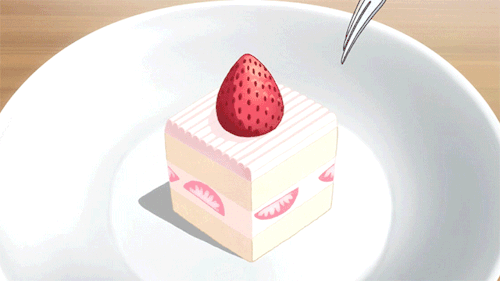
hi taekook-finity!
your recipe is ready to use!
<3
FIRST IMPRESSIONS!
title! (4/5)
-it sounds fitting but i don't know, i feel like it could be more creative? but it's good though!
cover! (2/5)
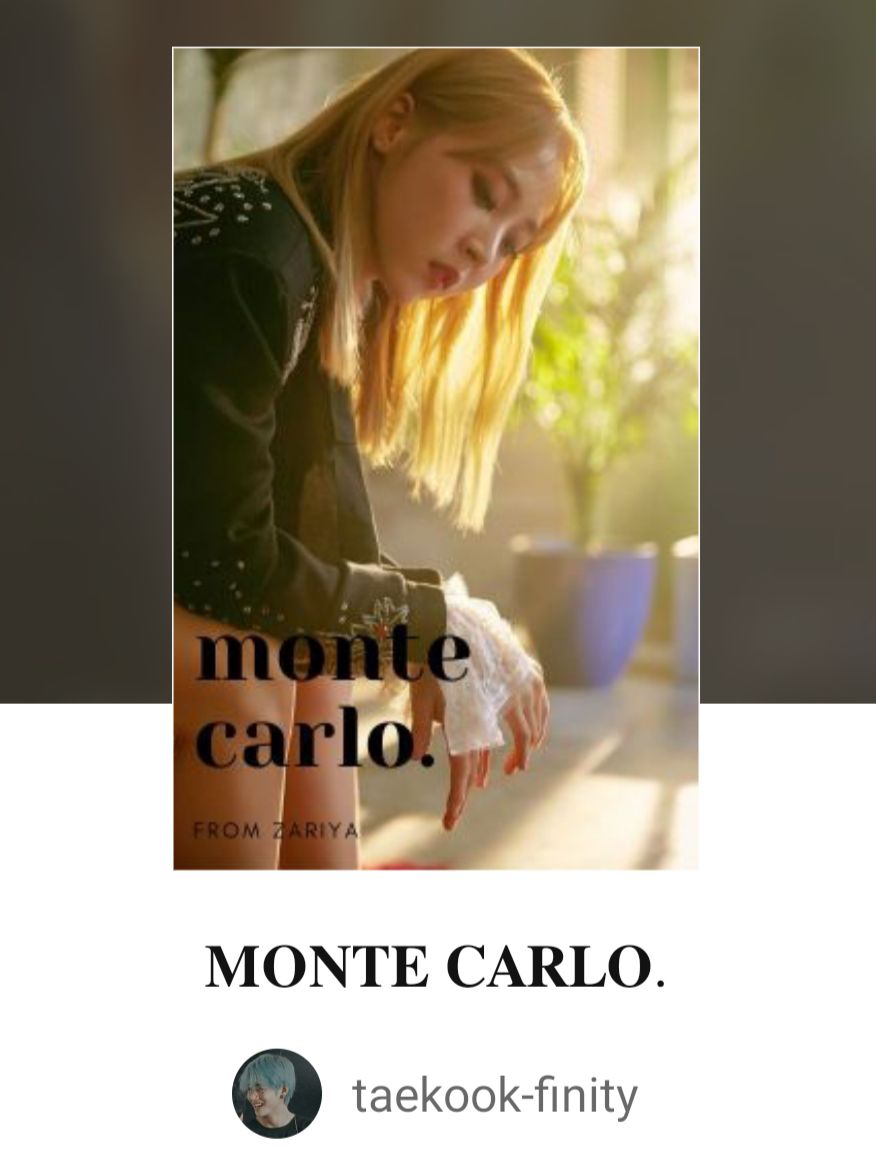
-if i'm not mistaken, that's moonbyul, right? welp the cover looks pretty and she does too but it isn't related to your story at all?
description! (8/10)
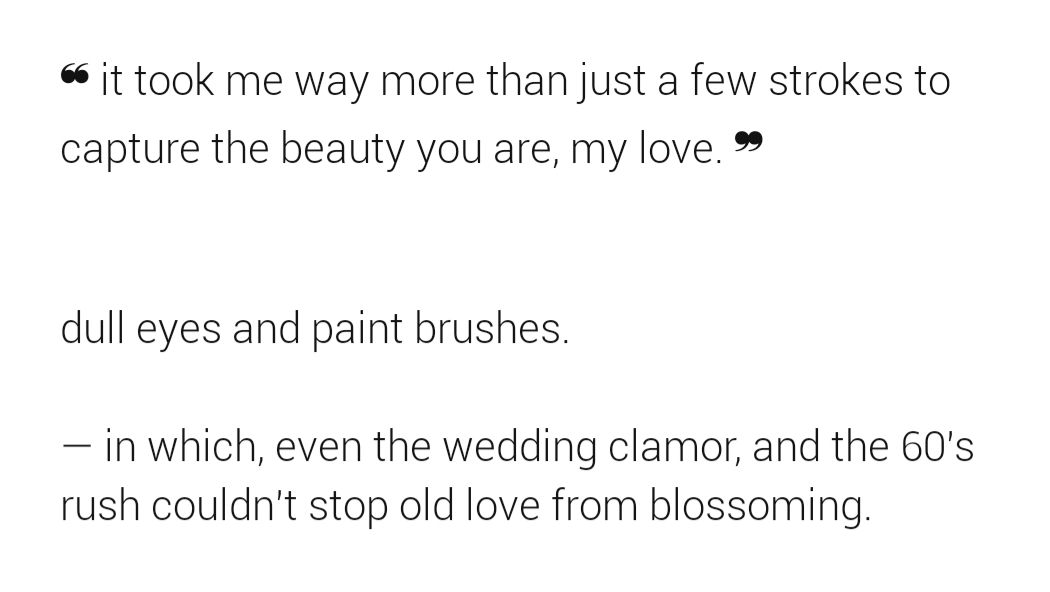
-😌😌 i love your description so much omg
-sadly, there are some grammatical mistakes that i've noticed.
-i believe that omitting the commas before and after the phrase 'even the wedding clamor' is a good choice since it doesn't seem necessary.
-60's is wrong if you meant 1960s. the following info are from google: decades should be written as two-digit numbers with an apostrophe before them and an s after them (e.g., '90s).
-simply change it to '60s and you're good to go!
-besides that, your description is brief yet mesmerizing and concise.
WRITING STYLE!
grammar! (13.5/20)
-honestly, i actually like your writing style! it's abundantly descriptive and it makes me imagine what i'm reading in my head nicely. some don't give me enough information for me to be able to visualize the the scene in my head but yours is different. it's like watching a movie but not really, y'know lmaoo
-i've found some mistakes wherein if you don't observe or pay attention to it too much, you won't even be able to notice it. here they are below:
(screenshots are from chapters 1-3.)
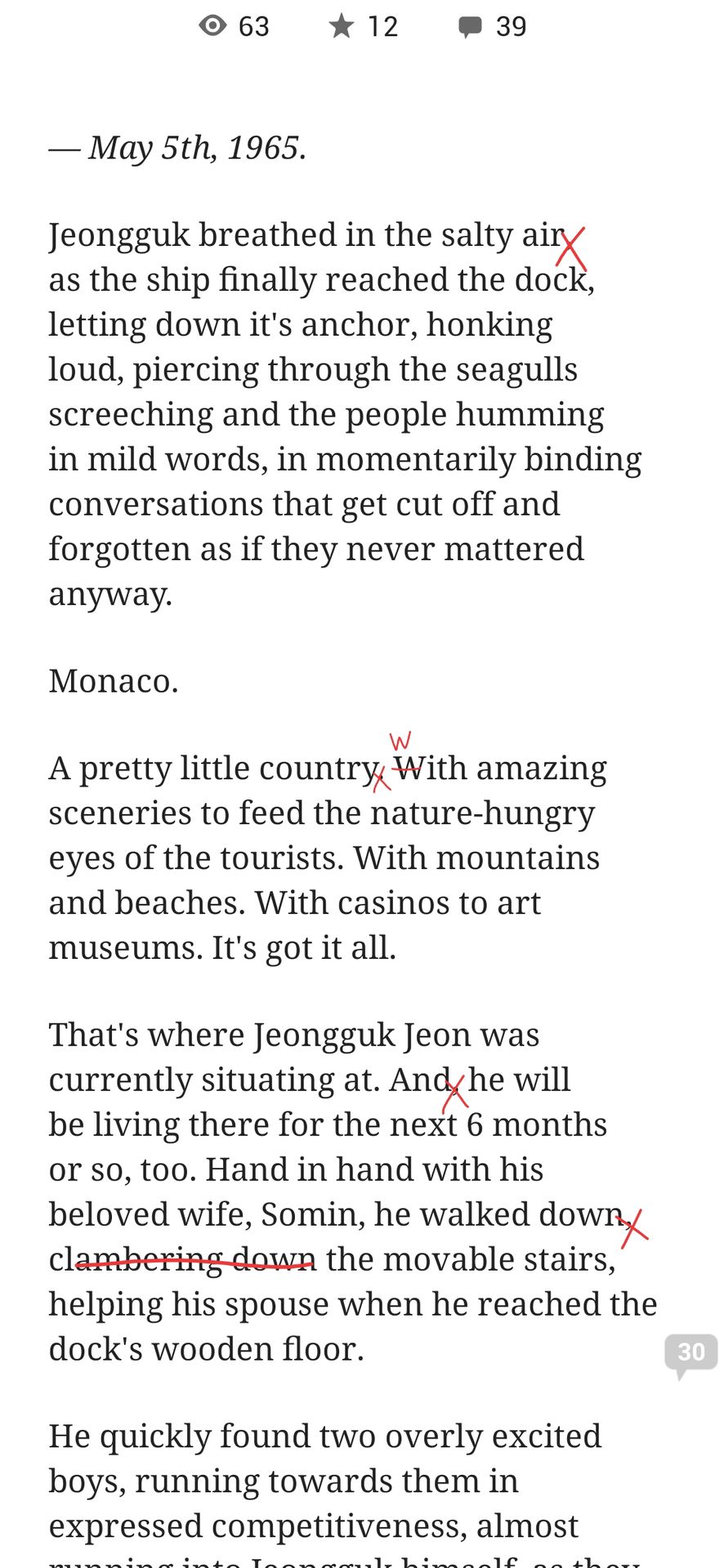
-this error has been made the most throughout your book and it's about placing a comma before 'as'. i think you somehow need to understand when to insert a comma and when not to.
-here's a detailed explanation that i found on google:
<In many sentences, if there is no comma before as, then as means "in the way that" or "while." When you insert a comma before as, its meaning changes to "because.">
Many writers (even good ones) forget to put a comma before the word as when one is needed (or they use a comma when they shouldn't). Writers tend to make this mistake when forming sentences in which as separates two independent clauses.
Below is an example of such a sentence. The comma is omitted in the first example and is included in the second.
George cleaned the house as his wife had asked him to.
George cleaned the house, as his wife had asked him to.
Both of these examples are grammatical. However, they do not mean the same thing, and so it is important to know how the use of a comma changes the meaning of the sentence.
Adding the comma did not change the meaning of any words in the sentence except for one: as. In sentences with the structure of our example, if there is no comma before as, then as means "in the way that" or "while." When you insert a comma before as, its meaning changes to "because."
So, the first sentence above, which contains no comma, can be rephrased as "George cleaned the house in the way that his wife had asked him to."
The second sentence, which contains a comma, can be rephrased as "George cleaned the house because his wife had asked him to."
Note that, for certain sentences, there is only one correct decision regarding the use of a comma based on the context.
George cleaned the house as he listened to the radio.
George cleaned the house, as he listened to the radio.
Putting a comma before as in this sentence is a mistake. George clearly cleaned the house while he listened to the radio, not because he was listening to the radio. The second sentence is still grammatical, but it isn't logical.
-i think you now understand when to put commas before the word 'as'. if you have time, edit your book and remove the commas before 'as' if unnecessary.
-since you already wrote 'walked down', 'clambering down' seems a bit extra? i mean, i feel like it's not needed 'cause you already have a verb similar to it in the same sentence. 'walked down the movable stairs' might sound better alone?
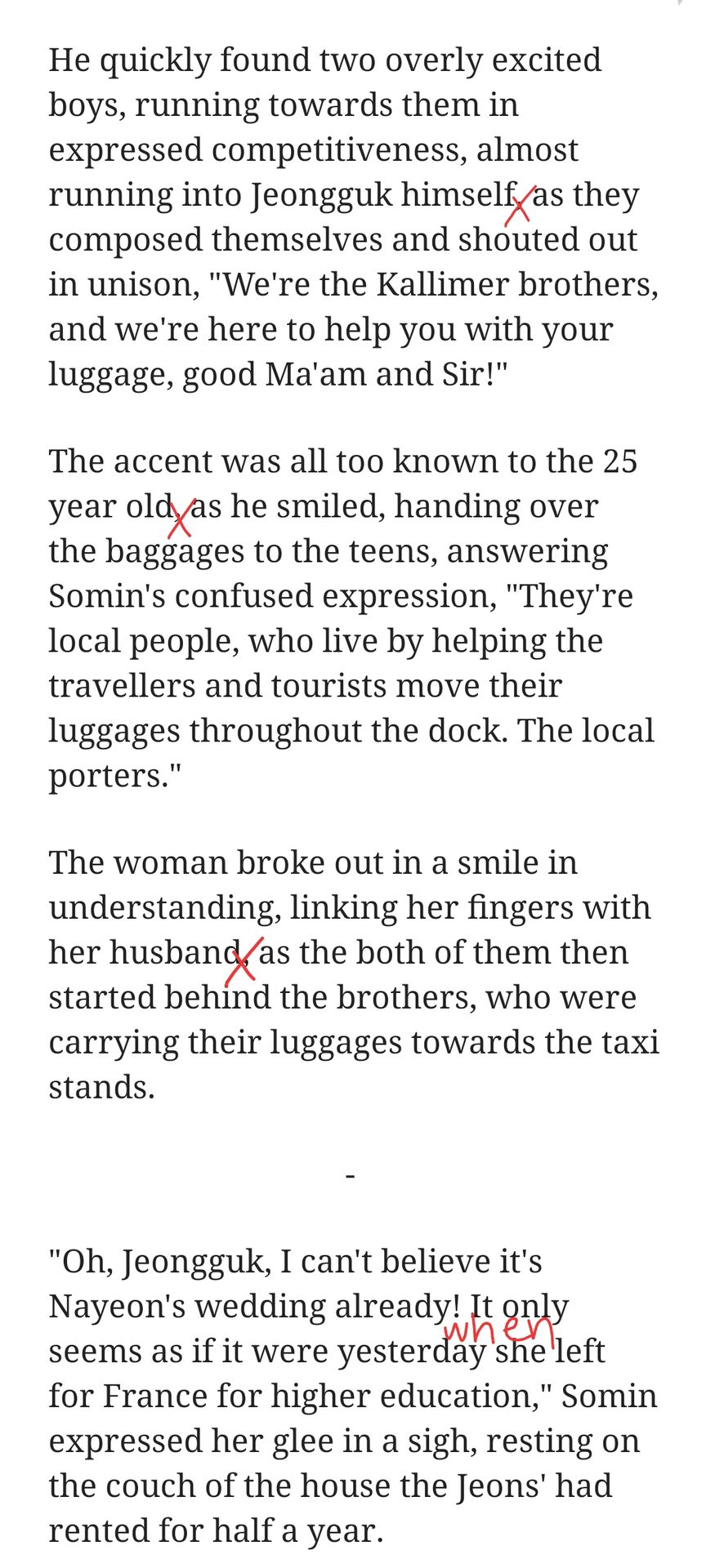
-you can now probably see how often you made the mistake with commas before 'as'.
-i added 'when' to make the sentence clearer but it's just optional because the dialogue still makes sense without 'when'.
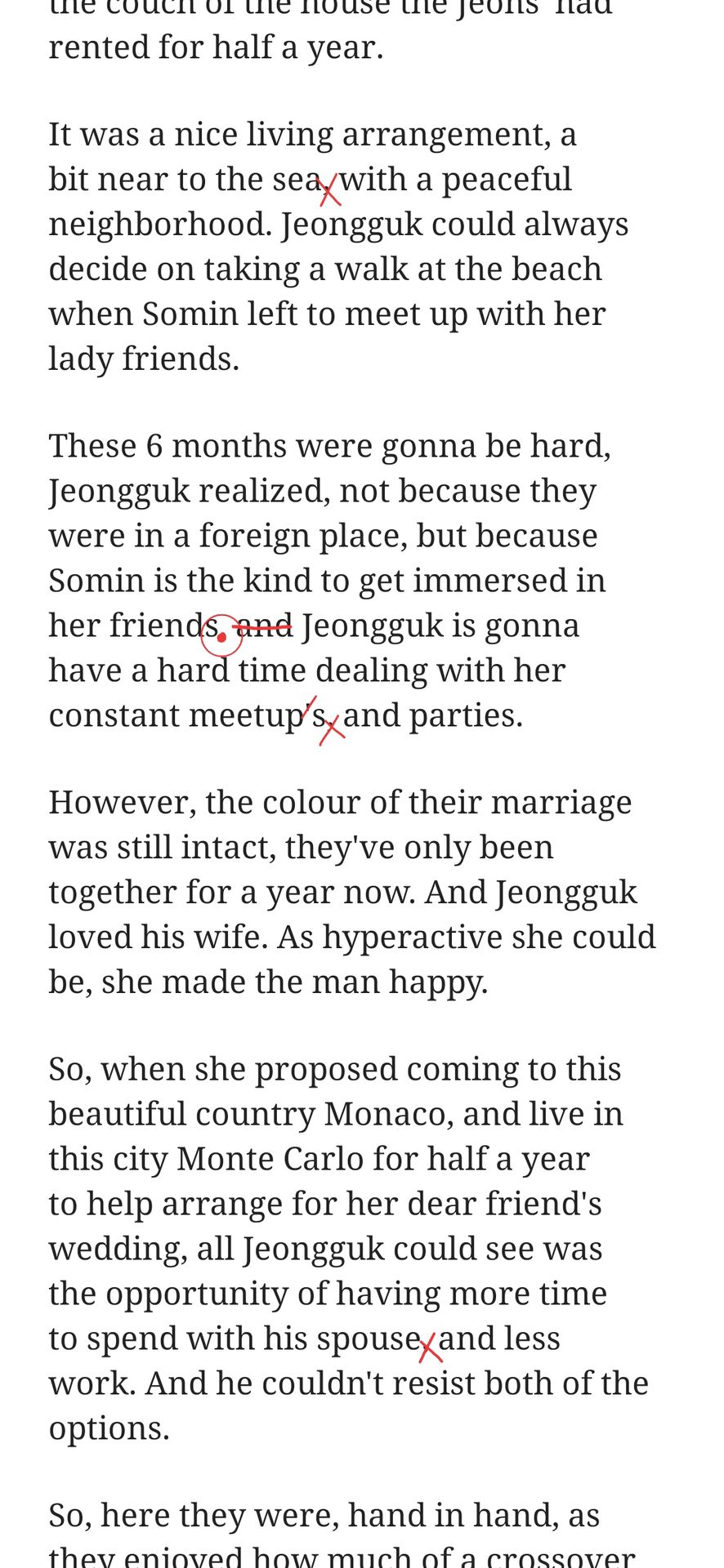
-you tend to write run-on sentences that aren't super evident if you're not attentive. try splitting them into two or more separate sentences to make it more accurate somehow.
-i suggest you study about commas since i feel like you've been having trouble with it. my thoughts are like that because i've found another error like the one before. it's basically adding commas before 'and'.
-here's a more thorough clarification from google:
The word and is a conjunction, and when a conjunction joins two independent clauses, you should use a comma with it. The proper place for the comma is before the conjunction.
On Monday we'll see the Eiffel Tower, and on Tuesday we'll visit the Louvre.
The sentence above contains two independent clauses, so it requires a comma before and. (By the way, you can tell they're independent clauses because each one could stand on its own as a complete sentence.)
Here's a tip: Remember, when you're joining two independent clauses, you need both a comma and a conjunction. If you use a comma without a conjunction, you'll end up with a comma splice.
Let's look at another example.
It's cold outside, and I can't find my coat.
Once again, we have two independent clauses: It's cold outside plus I can't find my coat. Therefore, we need a comma before and.
Don't use a comma before and when one of the clauses its connecting is a dependent clause.
Sam tossed the ball, and watched the dog chase it.
The first clause, 'Sam tossed the ball' could stand on its own as a complete sentence, which means it's an independent clause. But the second clause, 'watched the dog chase it', can't stand by itself as a complete sentence. That means it's a dependent clause, so we should not use a comma before and.
Sam tossed the ball and watched the dog chase it.
exceptions:
But wait! There's an exception. (Isn't there always?) When you have two independent clauses joined together by and, most style guides say that it's OK to leave the comma out as long as the two independent clauses are very short and closely connected. Here's an example:
Arthur cooked and Melvin cleaned.
It's not wrong to add a comma before and in the sentence above, but doing so might make the sentence a little choppy.
-there you go, i hope it cleared things up for you. if you have any concerns, feel free to ask me or search it up online hehe
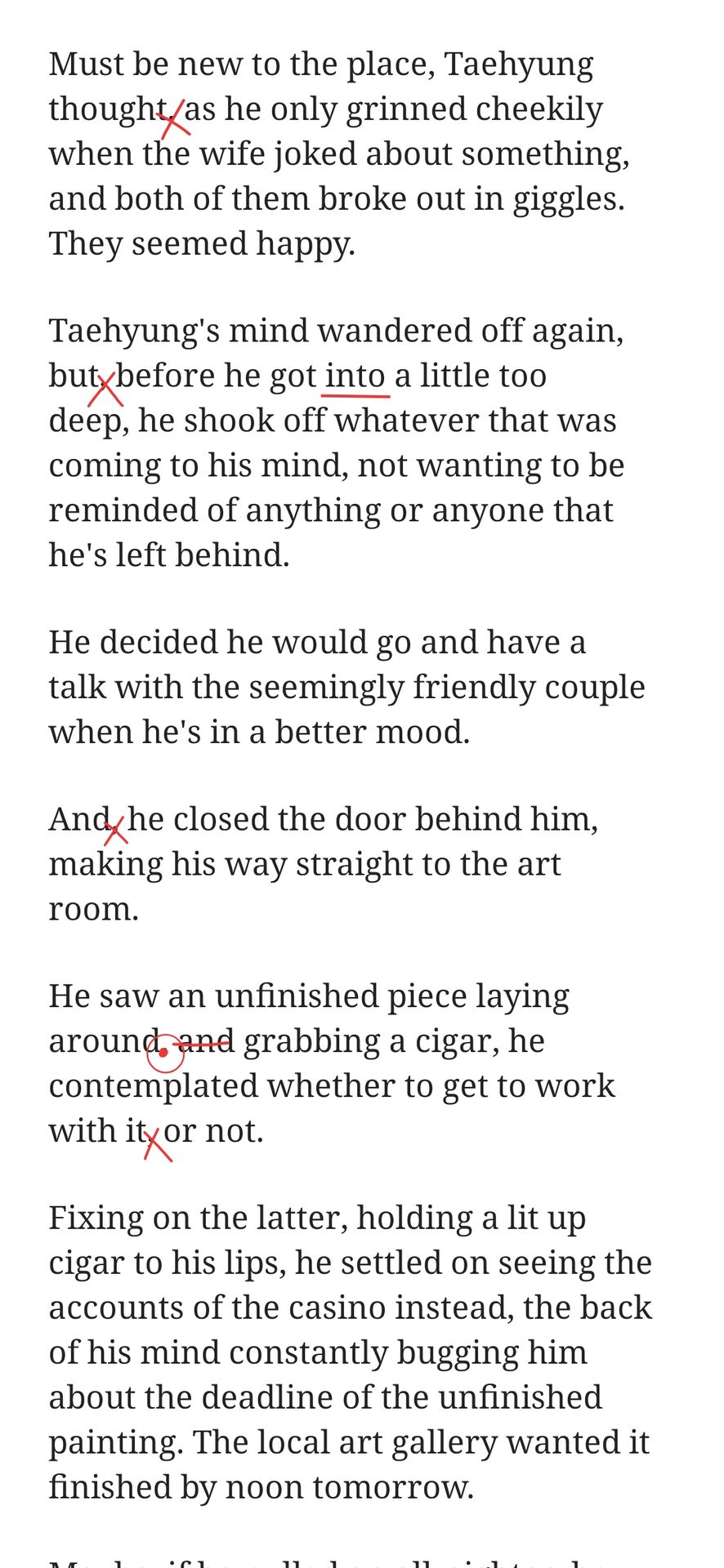
-this is probably just me but i feel like 'into' sounds sorta odd for some reason. i don't really know what to substitute it with either aaaah
-other corrections are the same as before. you can advance your understanding with punctuation marks by occasionally studying about it online to lessen your errors.
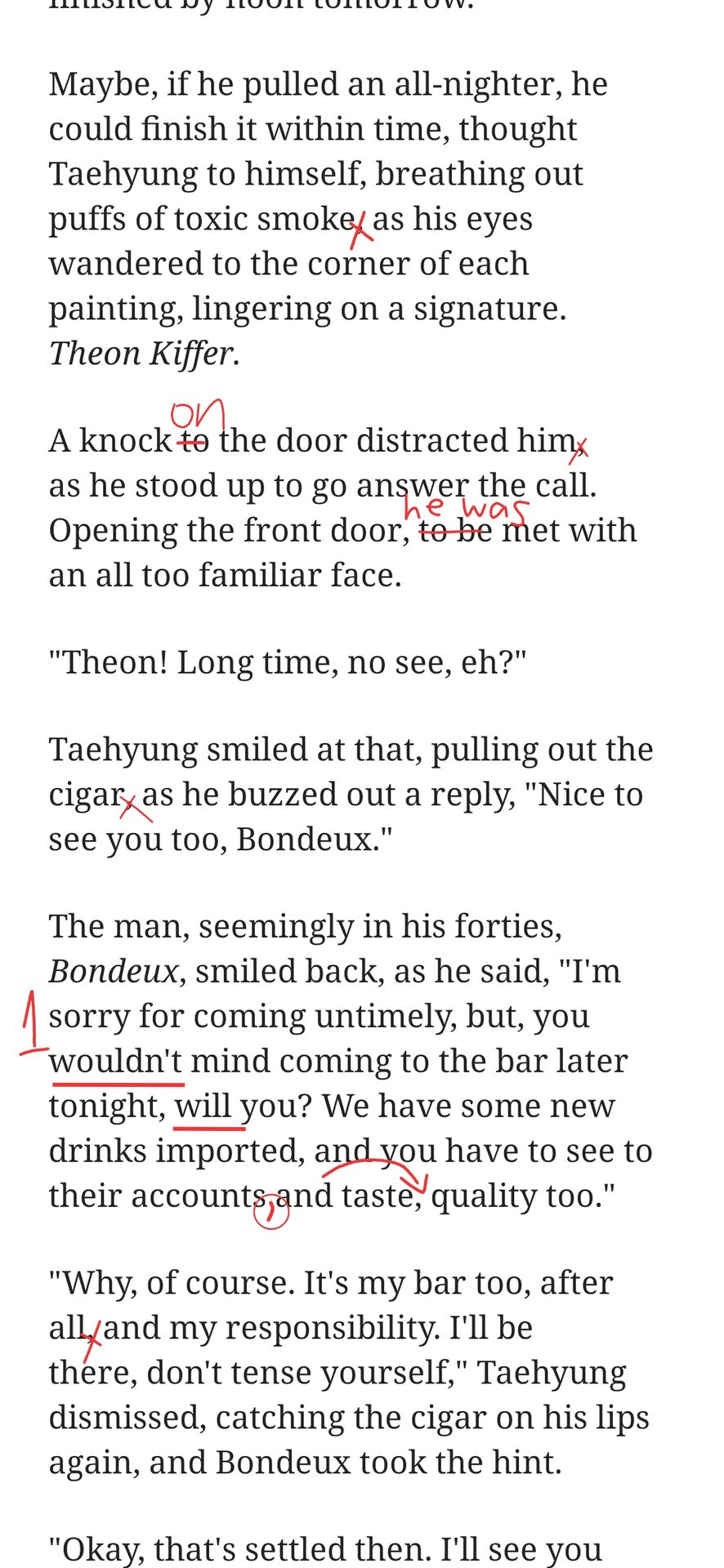
-i personally suggest rereading what you've written to locate unusual or awkward sentences and try to fix it. that's what i did with the screenshot above.
1. this is regarding tag questions. if you have a negative statement, then your tag question must be positive and you got that part right. what i'm going to be saying is my own opinion, okay? i may be wrong and i hope you remember that.
-your statement is '-you wouldn't mind coming to the bar later tonight-' and it's followed by the tag question '-will you?'. make sure that the auxiliary or helping verb of both the statement and the tag question is the same 'kind'. if your sentence has 'wouldn't', then your tag questions should be 'would you?'.
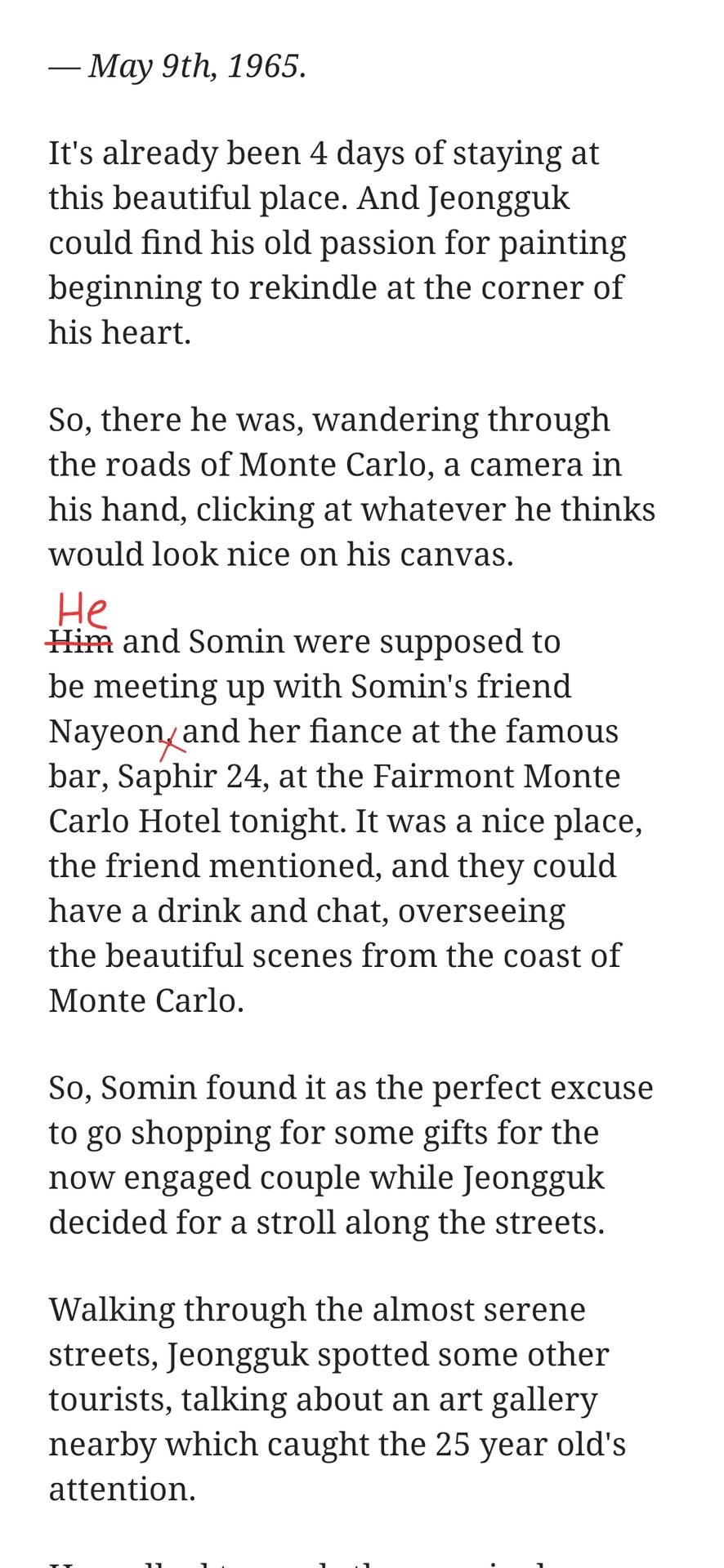
-'him' is an objective pronoun, objective pronouns are the indirect objects, direct objects or objects of the preposition in sentences.
-nominative pronouns, on the other hand, are the subjects of sentences. an example of that is 'he'.
-'him' should be replaced with 'he' in your sentence because you're treating 'jungkook' as the subject.
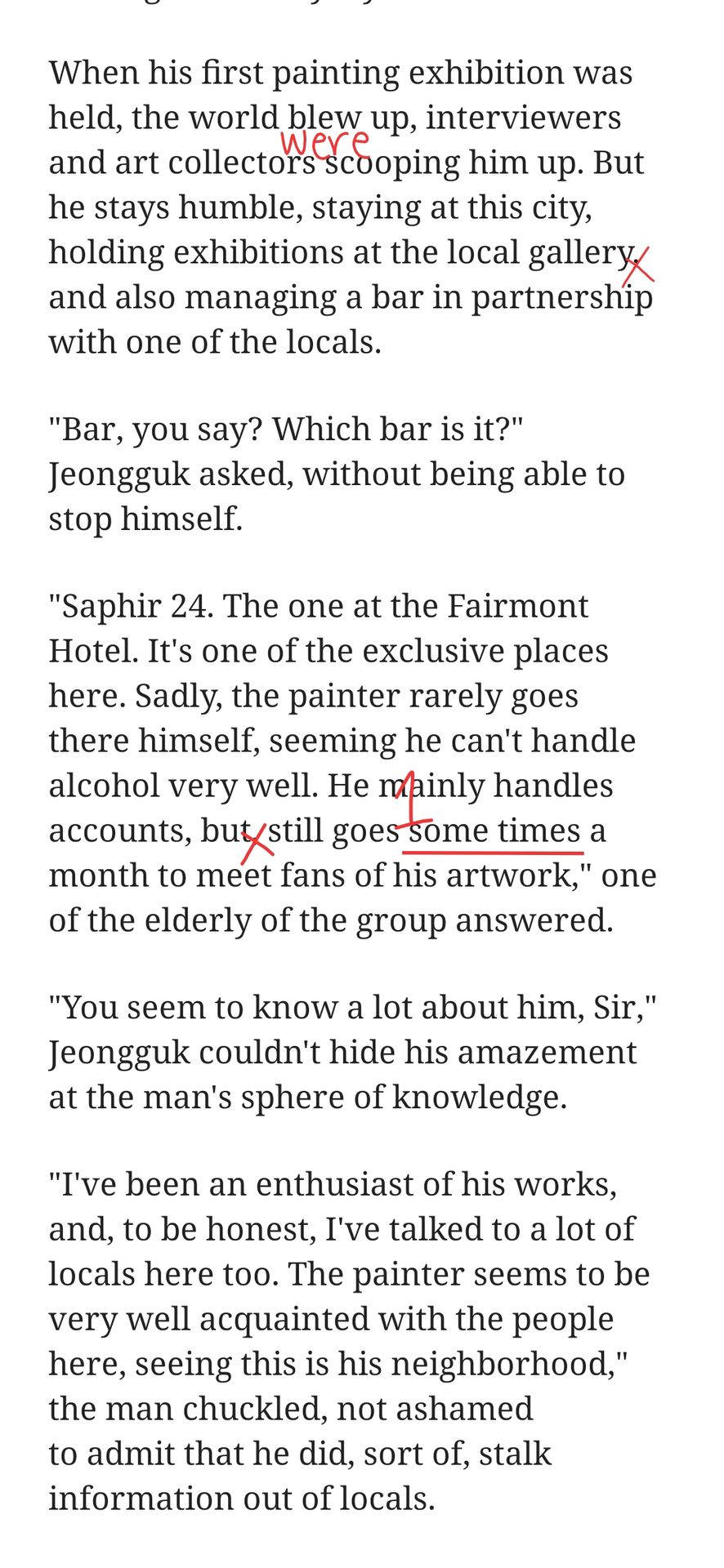
1. so um here we go again with google's help lmao let's hop right in!
The words "sometime," "some time," and "sometimes" are related in meaning, but they're used in different ways.
The adverb "sometime" (one word) means at an indefinite or unstated time in the future.
"Why don't you come up sometime and see me?
As an adjective, "sometime" means occasional or former.
"He's a full-time bartender and sometime actor."
The expression "some time" (two words) means "a period of time."
I fear that it will be "some time" before he is able to deal with his memories of the war.
The adverb "sometimes" (one word) means "occasionally, now and then."
"Sometimes," he likes to sleep with his boots on.
end.
-i got quite confused with this when i first read it but i think i have a gist of it. to make it easier, you don't have to use some time or sometime. maybe say '-a few times a month-'? mhm, i think it'll work fine.
-the information that i copy-pasted up there can be treated as extra information :)

1. a full run-on sentence wow. like what i said earlier, just separate it into shorter yet complete sentences.
-i don't know if this was intentional but you suddenly started writing in present tense when your book is normally written in past tense? it would be correct if your book revolves around present tense but i don't think it does?
-verb tense consistency is one of the most important things to remember when writing a book, at least that's what i heard.
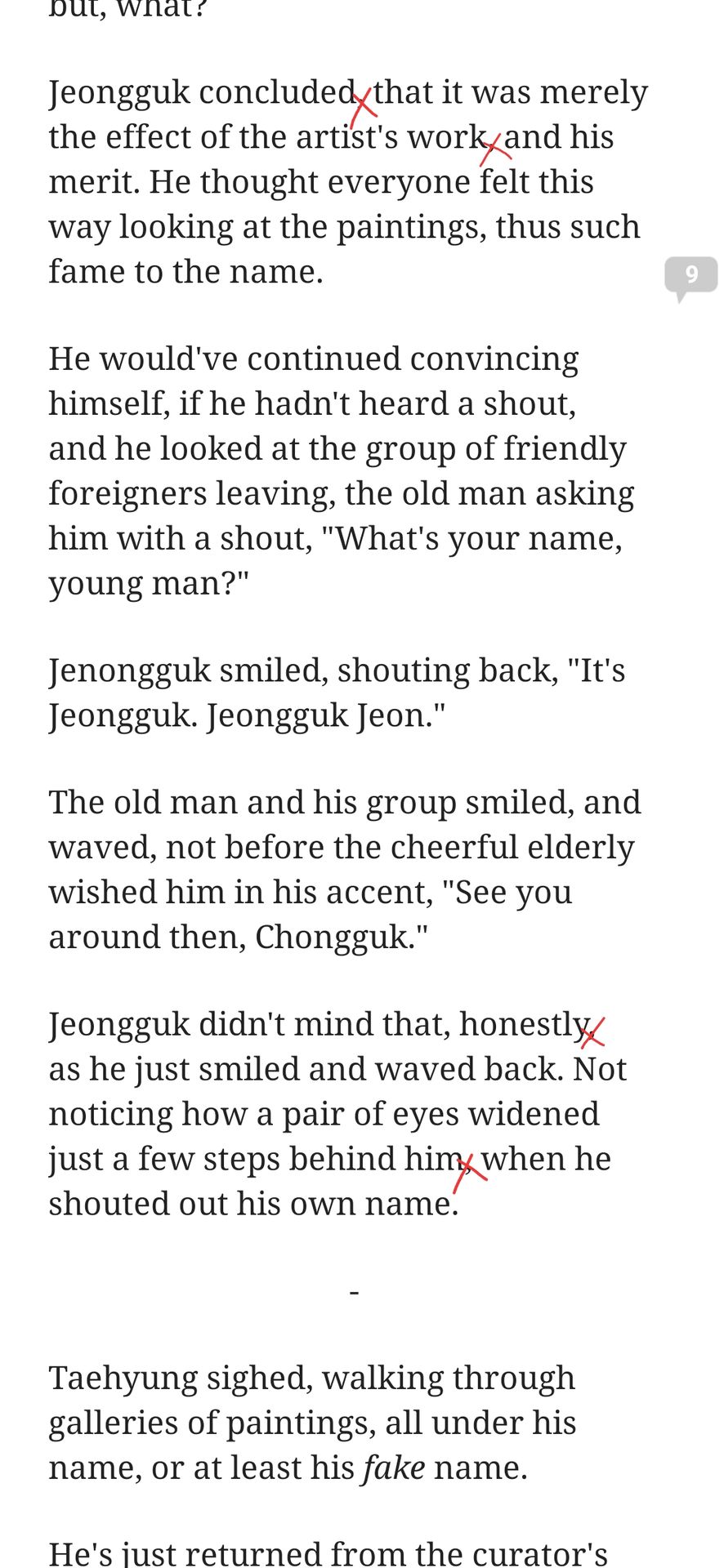
-just some more comma errors.
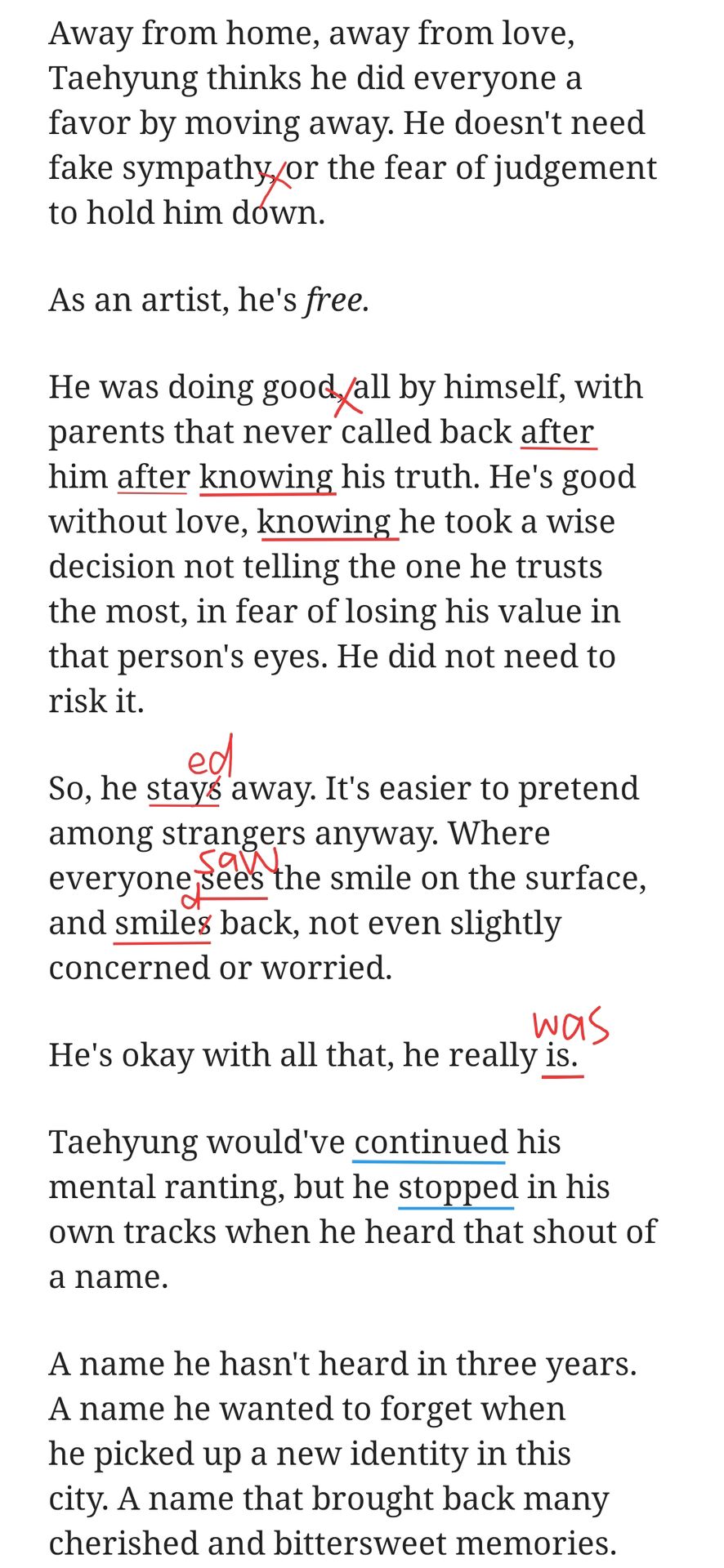
-having two of the same words close together makes it sound confusing and i don't know, basic? if ever you come across situations like this, the best way to solve it is to search for its synonyms online. that's what i do and it really helps me a lot.
-and we have more present tense verbs. it's strange how you suddenly switch between tenses, just like what i underlined. it's better to focus on just one verb tense.
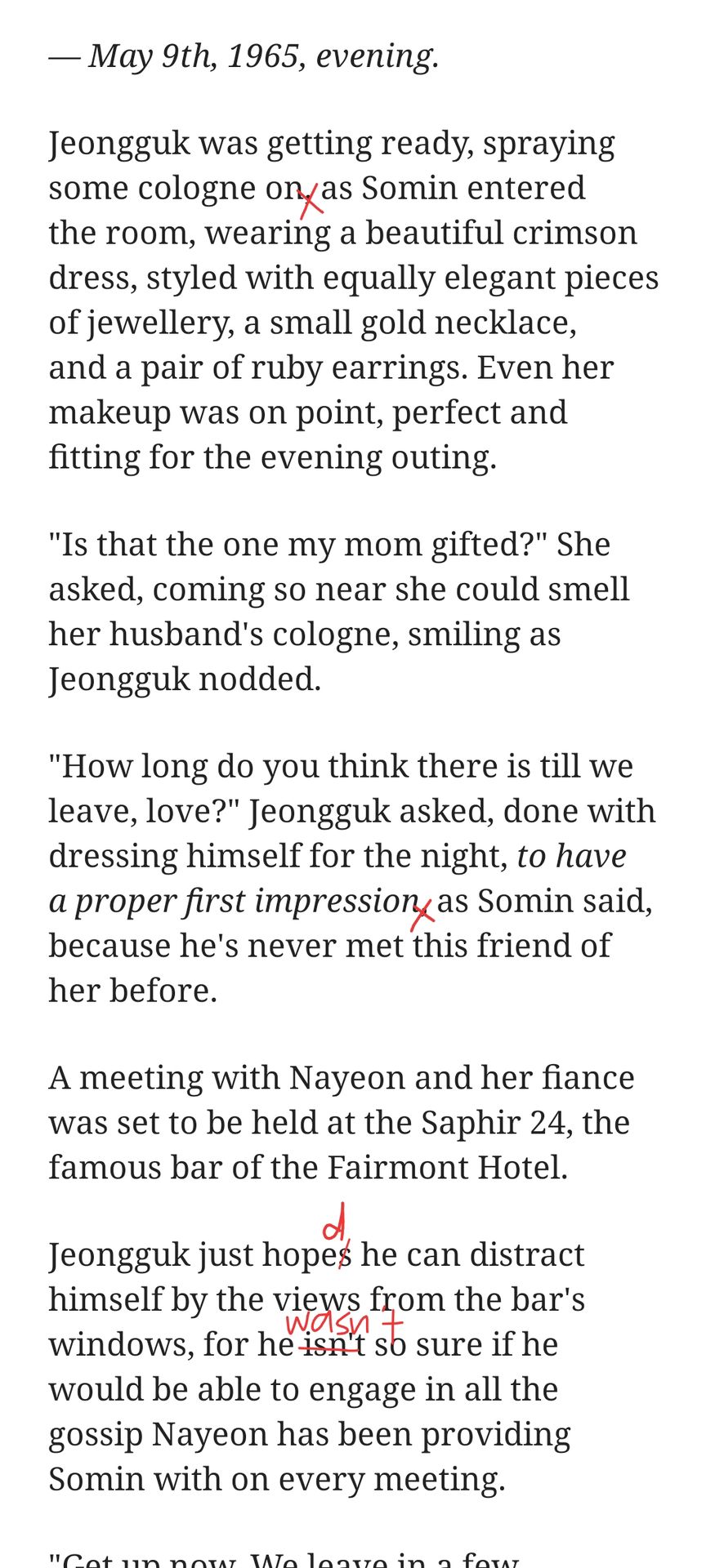
-same errors that were mentioned earlier.

-and yeah, those are identical mistakes from the ones you've made before.
summary of everything:
-only insert commas before 'as' and 'and' when necessary. keep in mind what i just copy pasted up there about these topics.
-split run-on sentences into shorter statements but still make sure that it's complete.
-verb tense consistency is important.
-searching for synonyms of words is highly recommended.
-nominative pronouns (i, he, she, they, etc.) act as subjects while objective pronouns (me, him, her, them, etc.) act as direct objects, indirect objects and objects of preposition.
-be on a lookout for awkward sentences and fix it if something sounds off.
-other than those, your writing style is great!
diction! (10/10)
-i love the way you describe things with your choice of vocabulary!
editing! (4.5/5)
-your rarely make spelling mistakes which is good news! i found this small error wherein you typed 'amd' when it was supposed to be 'and'. it's in chapter 1 btw :)
STORY DYNAMICS!
plot! (18/20)
-you have a very interesting plot going on and i like it! it's rare for me to read a book that's written at the time of somewhere in the 20th century so your book's refreshing and new.
-your story sounds like a work of art aaah i'm sorta into the concept that you're going for and am anticipating for future chapters!
flow! (10/10)
-ooooh i think that your pacing's just right.
characters! (9/10)
-your characters are honestly pretty diverse! you can see the different personalities of jungkook and somin, how somin's sweet and somehow a social butterfly while jungkook's more of the quiet yet observant type who gets allured by nature.
-taehyung's very different as well, he's very artistic, obviously, and attentive, sometimes selfish, sometimes selfless. there's just a lot going on and i like that!
OVERALL EXPERIENCE!
satisfaction! (7/10)
-it's new to me how your story is situated in the '60s, both in a good way and a bad way. maybe it's just because i'm not used to it but i'm willing to give it a shot since from the first 5 chapters, it sounds quite intriguing.
addictiveness! (3/5)
-same reasons as above, and it's most probably because it's something new.
-but your writing style and plot keeps me going!
overall thoughts! (89/110)
-great job in writing monte carlo! everything besides your grammar seems to be in good quality! it's definitely something pleasant and refreshing to read because of it's originality!
-about your grammar, as i mentioned, google will be such a big help to you if ever you're confused with anything. proofread and edit your whole book while keeping my points in mind! that'll surely polish and improve your book, trust me.
-thank you so much for requesting! have an awesome day ahead, zariya!
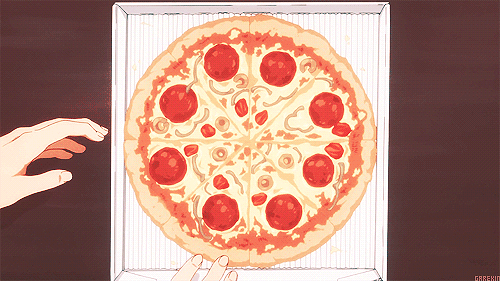
RATE THE QUALITY OF YOUR RECIPE HERE!
feel free to ask me any questions or clarifications! i'm willing to answer all of them!
-chef mae <3
Bạn đang đọc truyện trên: AzTruyen.Top